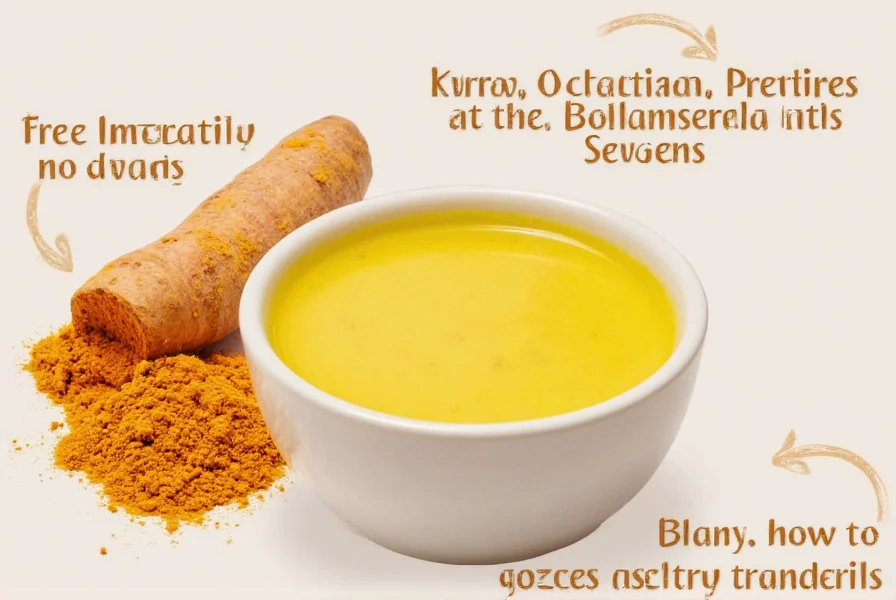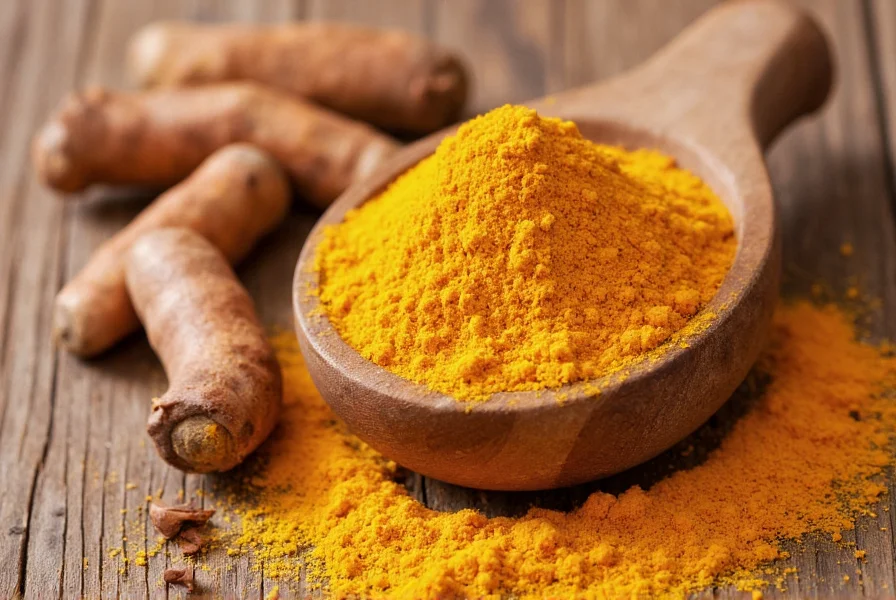For centuries, turmeric has been a staple in traditional medicine systems across Asia, particularly in Ayurveda and Traditional Chinese Medicine. This vibrant yellow spice, derived from the Curcuma longa plant's root, has gained significant attention in modern scientific research for its potential health-promoting properties. Understanding whether turmeric truly delivers on its health promises requires examining the current scientific evidence with a balanced perspective.
The Science Behind Turmeric's Active Compound
Curcumin represents turmeric's most studied bioactive component, accounting for approximately 2-8% of most turmeric preparations. This polyphenol compound demonstrates three key biological activities:
- Powerful anti-inflammatory effects that may rival some pharmaceutical medications
- Significant antioxidant capacity that neutralizes free radicals
- Ability to enhance the body's own antioxidant enzymes
Unlike many anti-inflammatory drugs that target single pathways, curcumin appears to influence multiple molecular targets simultaneously. This multi-target approach could explain why researchers are investigating turmeric for various health conditions, though it also complicates definitive conclusions about its efficacy.
| Health Condition | Research Status | Key Findings |
|---|---|---|
| Osteoarthritis | Strongest evidence | Multiple studies show reduced pain and improved function comparable to NSAIDs |
| Metabolic Syndrome | Moderate evidence | May improve insulin sensitivity and reduce inflammatory markers |
| Depression | Promising but limited | Some studies show comparable effects to antidepressants in mild-moderate cases |
| Cancer Prevention | Preliminary | Laboratory studies show potential, but human evidence remains limited |
Understanding Turmeric's Bioavailability Challenge
One of the most significant limitations in turmeric research involves its poor bioavailability. When consumed orally, curcumin faces several absorption challenges:
- Low solubility in water
- Rapid metabolism in the liver and intestinal wall
- Quick systemic elimination
These factors mean that even when consuming substantial amounts of turmeric, very little curcumin actually reaches the bloodstream. Many clinical studies demonstrating health benefits used specialized formulations that enhance absorption, such as combining curcumin with piperine (from black pepper) or using liposomal or nanoparticle delivery systems. This distinction between dietary turmeric and specialized supplements is crucial when evaluating research findings about is turmeric good for inflammation or other specific health claims.

Evidence-Based Health Benefits of Turmeric
Based on current research, turmeric shows the most consistent benefits for specific health concerns:
Joint Health and Inflammation
Multiple randomized controlled trials indicate that curcumin supplementation (typically 500-1500mg daily of enhanced-absorption formulations) significantly reduces pain and improves physical function in people with osteoarthritis. A 2016 review in the Journal of Medicinal Food concluded that curcumin extracts appear as effective as ibuprofen for knee osteoarthritis but with fewer gastrointestinal side effects.
Metabolic Health
Research suggests curcumin may improve several markers of metabolic health. A 2017 meta-analysis found that curcumin supplementation significantly reduced fasting blood glucose, insulin resistance, and triglyceride levels in people with metabolic syndrome. These effects appear modest but statistically significant across multiple studies examining does turmeric help with blood sugar regulation.
Mood and Cognitive Function
Emerging research indicates potential benefits for brain health. A 2014 study published in the Journal of Affective Disorders found that 1,000mg daily of curcumin significantly improved symptoms of depression after 6 weeks compared to placebo. Other research suggests curcumin may increase brain-derived neurotrophic factor (BDNF), a growth hormone that functions in the brain, potentially offering protection against age-related cognitive decline.
Important Limitations and Considerations
While the research on turmeric is promising, several important limitations exist:
- Many studies use high-dose curcumin supplements, not culinary turmeric
- Sample sizes in human trials are often small
- Long-term safety data for high-dose supplementation remains limited
- Most research focuses on short-term outcomes rather than long-term health impacts
When evaluating claims about is turmeric good for weight loss or other specific benefits, it's essential to distinguish between preliminary laboratory findings and robust human evidence. Many popular health claims about turmeric exceed what current research actually supports.
Safety Profile and Potential Interactions
Turmeric consumed in typical culinary amounts is generally recognized as safe by the FDA. However, high-dose supplementation requires more caution:
- Doses exceeding 8 grams daily may cause gastrointestinal discomfort
- May interact with blood thinners like warfarin
- Potential interactions with diabetes medications requiring blood sugar monitoring
- Should be avoided before surgery due to potential bleeding risk
Pregnant women should avoid therapeutic doses of turmeric supplements, though culinary use appears safe. Individuals with gallbladder issues should consult a healthcare provider before using turmeric medicinally, as it may stimulate bile production.

Practical Recommendations for Turmeric Consumption
Based on current evidence, here's how to thoughtfully incorporate turmeric into your health routine:
- For general wellness: Add 1-3 grams of culinary turmeric to foods daily, combined with black pepper to enhance absorption
- For specific health concerns: Consider standardized curcumin supplements providing 500-1,500mg of enhanced-absorption curcumin daily, after consulting with a healthcare provider
- Optimal absorption: Consume turmeric with healthy fats (like olive oil or avocado) and black pepper
- Realistic expectations: View turmeric as a complementary approach rather than a standalone treatment for health conditions
When selecting supplements, look for products specifying curcumin content and absorption-enhancing technology. Reputable third-party testing certifications (like USP, NSF, or ConsumerLab) provide additional quality assurance when evaluating which turmeric supplement is most effective.
Conclusion: A Balanced Perspective on Turmeric's Health Value
Turmeric represents a promising natural compound with scientifically supported health benefits, particularly for inflammation-related conditions. However, it's crucial to maintain realistic expectations about what turmeric can and cannot do. The strongest evidence supports its use for joint health and certain aspects of metabolic health, but many popular health claims lack robust human evidence. When considering is turmeric good for your health overall, the answer is nuanced: culinary turmeric is a safe and potentially beneficial addition to a healthy diet, while therapeutic benefits for specific conditions may require specialized supplements under professional guidance. As with any natural remedy, turmeric works best as part of a comprehensive approach to health rather than a miracle cure.











 浙公网安备
33010002000092号
浙公网安备
33010002000092号 浙B2-20120091-4
浙B2-20120091-4